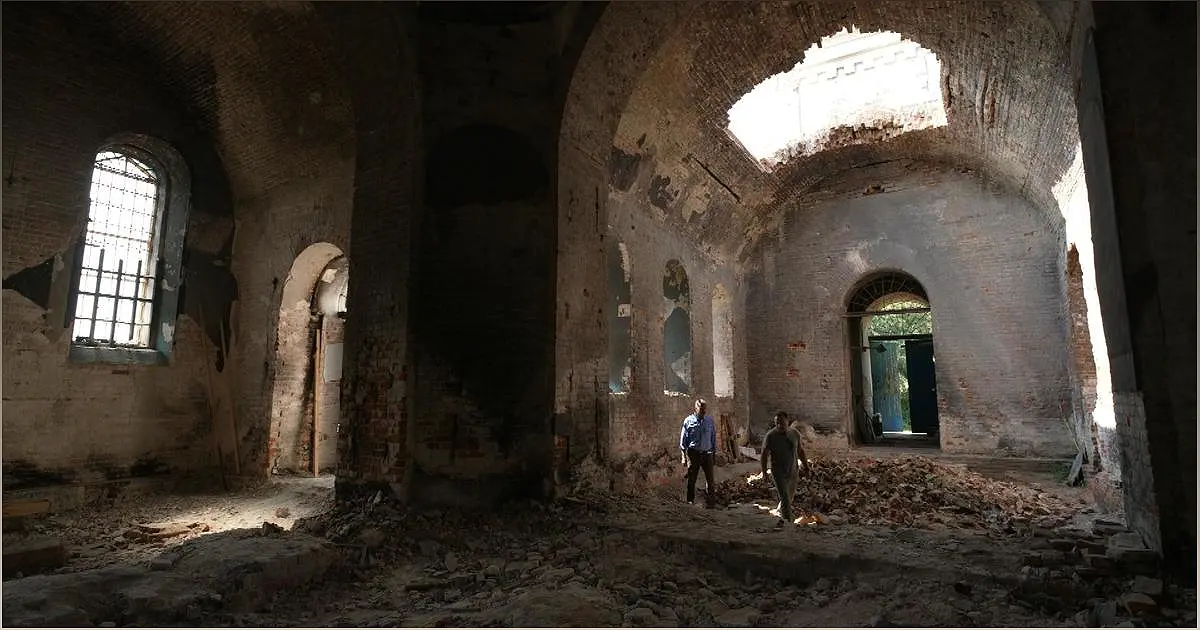In the face of conflict, cultural heritage often becomes a casualty. Ukraine has been a victim of Russia's targeted destruction of its heritage sites, including churches, museums, libraries, and monuments. This deliberate campaign of cultural genocide seeks to erase Ukraine's history and identity. Join me as we delve into the devastating impact of Russia's actions and the importance of preserving cultural heritage for future generations.
Russia's Targeted Destruction: Erasing Ukraine's Heritage
Explore the deliberate campaign of cultural genocide by Russia, aimed at erasing Ukraine's history and identity.
Amidst the chaos of war, cultural heritage sites often become casualties. In the case of Ukraine, Russia has embarked on a disturbing mission to destroy its rich heritage. Churches, museums, libraries, and monuments have all fallen victim to this deliberate campaign of cultural genocide.
But why is Russia so intent on erasing Ukraine's history and identity? The answer lies in the geopolitical tensions between the two nations. By targeting Ukraine's cultural heritage, Russia seeks to assert its power and send a clear message that it can do as it pleases.
However, the impact of this destruction goes beyond physical structures. It is an attack on the very essence of Ukraine's identity and historical memory. The loss of these cultural treasures not only robs future generations of their heritage but also undermines Ukraine's sovereignty and independence.
The Devastating Toll on Ukraine's Cultural Heritage
Witness the destruction inflicted upon Ukraine's churches, museums, libraries, and monuments since Russia's invasion.
The scale of destruction inflicted upon Ukraine's cultural heritage is staggering. Since Russia's invasion, over 700 churches have been hit, and numerous museums, libraries, and monuments have been bombed, burned, or shelled.
One heartbreaking example is the Church of the Nativity in Viazivka, a small Ukrainian village. Despite no fighting in the vicinity, it was targeted and destroyed by Russian shelling. This deliberate act of cultural destruction serves as a stark reminder of the power dynamics at play.
Moreover, Russia has been accused of looting more than 30 museums in Ukraine, constituting the largest art theft since World War II. This pillaging further exacerbates the loss of Ukraine's cultural heritage.
Preserving Cultural Heritage: A Frontline in the War
Discover the importance of protecting and preserving Ukraine's cultural heritage in the face of Russia's aggression.
Amidst the chaos of war, preserving cultural heritage may seem like a secondary concern. However, it is crucial to recognize that the destruction of cultural heritage is not collateral damage but a deliberate strategy employed by Russia.
Ihor Poshyvailo, co-founder of Ukraine's Heritage Emergency Response Initiative, emphasizes the significance of protecting these sites. He sees it as one of the front lines in the war, as it is a battle for Ukraine's identity and historical memory.
Efforts have been made by Ukrainians to safeguard their heritage, with individuals like Milena Chorna setting up a museum crisis hotline and workers even moving into museums to protect collections. However, the international community must also play a role in supporting these preservation efforts.
Russia's Cultural Genocide: A War Crime
Uncover the war crimes committed by Russia through the deliberate destruction of Ukraine's cultural property.
The deliberate destruction of cultural property during armed conflict is considered a war crime. In the case of Russia's actions in Ukraine, it is a clear violation of international law.
Ukrainian investigators view Russia's campaign of cultural genocide as an attempt to erase Ukraine's history and identity. They have established a new unit to investigate these war crimes and hold Russia accountable.
Criminal lawyer Vitali Tytych leads this unit and has expressed concerns about the effectiveness of international treaties and the international criminal court in preventing such atrocities. The evidence of war crimes committed by Russia continues to mount, highlighting the urgent need for justice.

